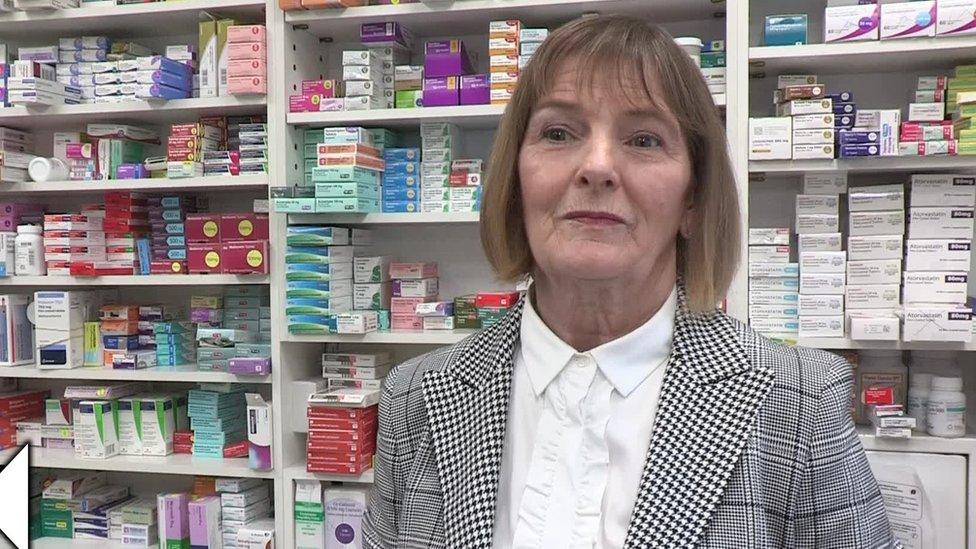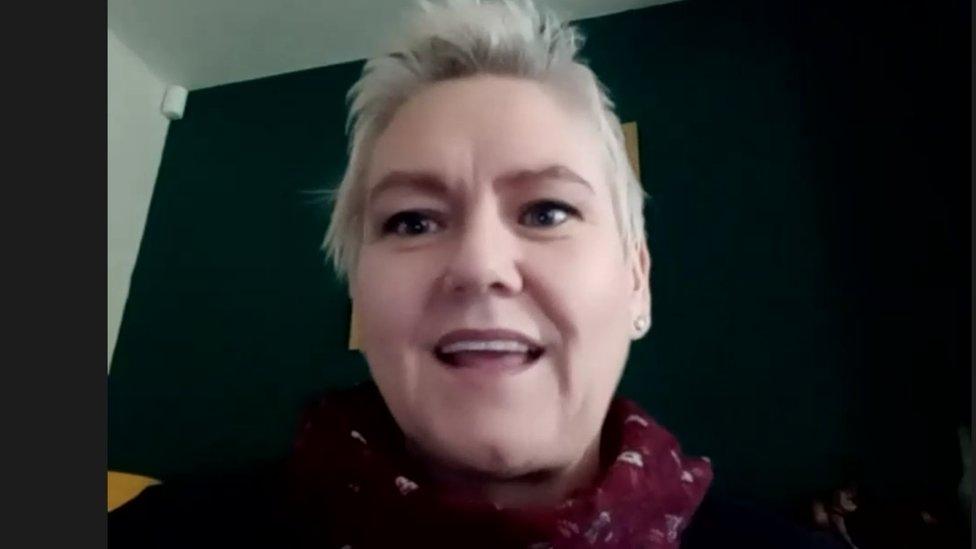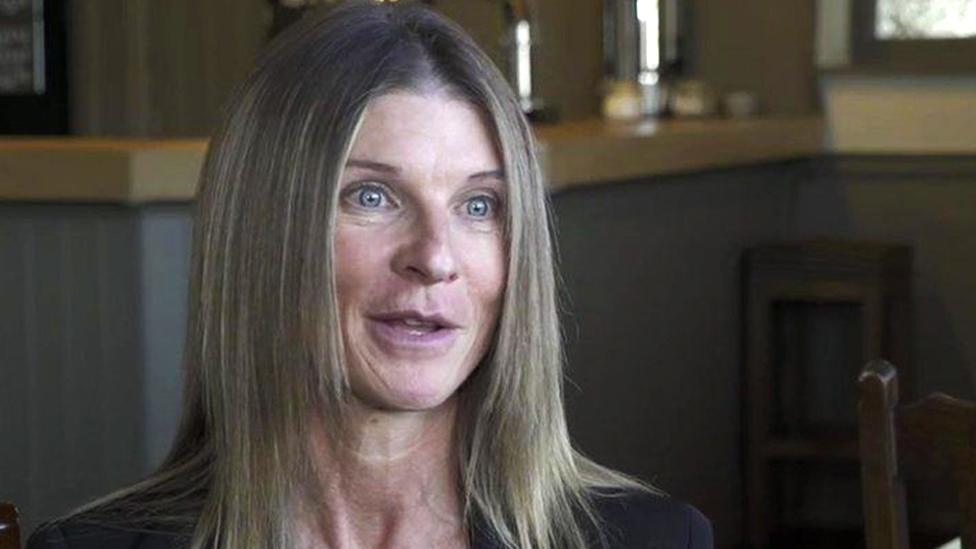Hormone replacement therapy: NI shortage 'distressing' for women
- Published
Hormone replacement therapy: NI shortage "distressing" for women
The shortage of hormone replacement therapy (HRT) in Northern Ireland is distressing for women and challenging for pharmacies trying to access it, according to a community pharmacist.
Loretto McManus advised women to leave plenty of time for ordering their prescriptions.
The Health and Social Care Board said there were "some treatments which are currently experiencing supply issues".
HRT helps many women control their often difficult menopausal symptoms.
There is a national shortage of HRT with officials citing several reasons including manufacturing delays, an increase in demand and possibly Brexit.

Loretto McManus said the HRT shortage is challenging for pharmacies trying to access it
Ms McManus said certain products were out of stock in pharmacies across Northern Ireland and that this was "distressing" for women who have become used to particular treatments.
"As a community pharmacist the utmost care of our patients is premium to us," she said.
"Trying to source the prescribed product in a timely manner for the patient can be challenging.
"Sometimes that product won't be available and unfortunately this is not in the control of the community pharmacy. It can be a manufacturing problem, so we have to keep our communication channels open with a GP and liaise with them."
Several women have told BBC News NI that they were being offered substitutes or had to source the medication themselves.
'Very distressing'
Kathryn Schreuder said she had to source her treatment as her pharmacy could not.
Ms Schreuder is part of a Northern Ireland menopause support group and said a growing number of women were experiencing problems.

Kathryn Schreuder is part of a NI Menopause Support group and said a growing number of women are experiencing problems
"We had one lady who had to ring round dozens of pharmacies in Northern Ireland and ended up travelling from Belfast to Crossgar to access one bottle," she said.
"For a lot of women, their concern is, if their medication isn't available and they have just maybe spent six months to a year getting the right level of what they need, for that suddenly to be changed because of the limitation of what is available is very distressing."
'Essential medication'
Byddi Lee is 51 and is also on HRT. At present she has enough to last her a couple of weeks.
Ms Lee was contacted by her pharmacist a fortnight ago to alert her to supply issues with her medication.
She said her tailored treatment, which took a few attempts to get right, got rid of chronic migraines and joint pain.
Ms Lee said this medication was "essential" and that she was afraid she might have to try alternatives which might mean a return of her symptoms.

The shortage of certain treatments, mainly Estrogel, has been felt since 2019 but has become a lot more acute.
More women are being treated for menopausal symptoms in Northern Ireland, increasing demand for supplies.
It is a similar picture across the UK.
Over the past 12 months, a national campaign by a number of high profile women to try and debunk the myth around the menopause has led to thousands more women seeking help.
Ms McManus said she encouraged women that were being prescribed HRT to think about ordering their prescriptions one or two weeks in advance to allow for any supply issues to be ironed out with GPs.
"Obviously there is an element of distress because if you have a lady who has been stabilised on a particular product and it suddenly becomes unavailable, I mean her immediate reaction is 'oh I can't be without this product, I don't know how my life is going to change now, everything has just been so wonderful since I've been taking this.'"
"Where am I going to go now? These are all the questions we deal with and we do try and support this lady."
The Health and Social Care Board said there were a small number of HRT medicines which were in short supply.
When offering women different medication, prescribers are advised to check the British Menopause Society website for suitable substitutes and equivalent doses.
'Ongoing supply issues'
Reports of shortage of HRT drugs have been reported across the UK since 2019.
In August 2019 The Royal College of Obstetricians and Gynaecologists (RCOG), the British Menopause Society (BMS) and the Faculty of Sexual and Reproductive Healthcare (FSRH) issued a joint statement on this matter calling on the Department of Health and Social Care to work with manufacturers to understand and limit the impact of these shortages.
It was mostly understood the shortage was driven by higher global demand and manufacturing issues. The pandemic has exacerbated it.
In February 2020 in response to a written PQ the Department of Health stated: "We are aware of ongoing supply issues with some hormone replacement therapy (HRT) products due to a range of issues including manufacturing issues, regulatory issues and problems accessing the raw pharmaceutical ingredient.
"This is alongside commercial decisions made by some companies to divest these products."
- Published3 July 2021

- Published29 October 2021

- Published18 October 2021
